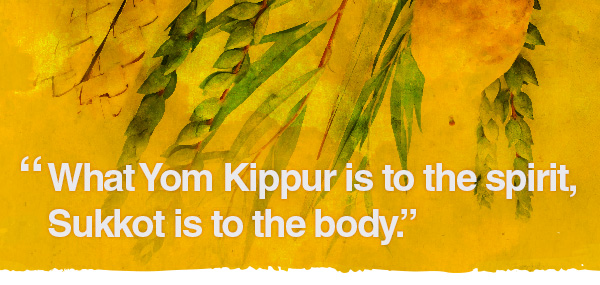
By Rabbi Will Berkovitz, CEO.
This week, we are celebrating the holiday of Sukkot. What Yom Kippur is to the spirit, Sukkot is to the body. We set up a temporary and fragile shelter that we live in for the days of the festival. It is not possible to close the door of a sukkah because it doesn’t have one.
The holiday is a reminder that the walls we put up and the doors we lock are an illusion. They will not truly protect us—either physically or emotionally. So much feels precarious this year. We don’t need to live in a sukkah to remind us.
A sukkah is different from our normal homes in that it is permeable— thresholds are blurred and there is very little distinction between inside and out. Past and present become hazy.
It is with this awareness that we welcome people to sit with us, share a meal and celebrate under the stars or clouds. The tradition tells us to welcome in our ancestors, maybe to remind us of the long history of joy and sorrow—another reminder of how ephemeral life is.

“Growth is in what we choose at the crossroads of our past and future,” I imagine them saying. “Live into your hopes, not your fears.” As I look into their faces, they continue: “Don’t retreat to our imagined past. We were there. It wasn’t what you think.”
As we sit in our temporary and fragile dwelling—under branches thin enough to see the stars, but thick enough to provide shade, inside walls that flutter in the slightest breeze—I can hear my parents and grandparents, all those who are now gone from this world.
I marvel at the multitude of accents and I hear my grandmother say, “The past was not always so great, but it wasn’t so grim either.” My grandfather adds, “We get to choose what we do with the time we are given and how we choose to remember it. It goes by so fast.”
I suspect every one of them would tell me the past is a lot like today because the same types of people that lived in their past are alive in our present—one person’s sinner is another’s saint. This is why repairing the world is an eternal struggle. And why it happens in fits and starts.
We rarely recognize the implications of the moment because try as we might, the future is shrouded in mist. So too it was for them: “We made the best decisions we could with the information we had. All you can do is try and make meaning out of the life you are given,” they say. In the pause my mother adds, “And have faith you are improving the lives of those around you.”
As my father gets up to leave, he chuckles, looks up and says, “Will. You still think too much. Just enjoy the stars.”
In Peace,

Rabbi Will Berkovitz
Chief Executive Officer



